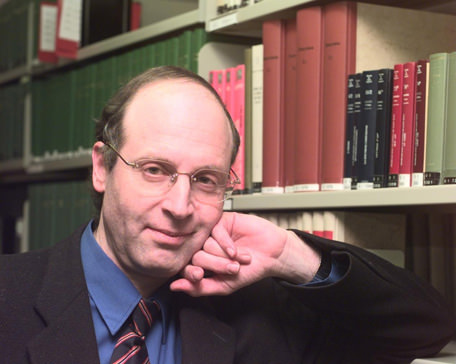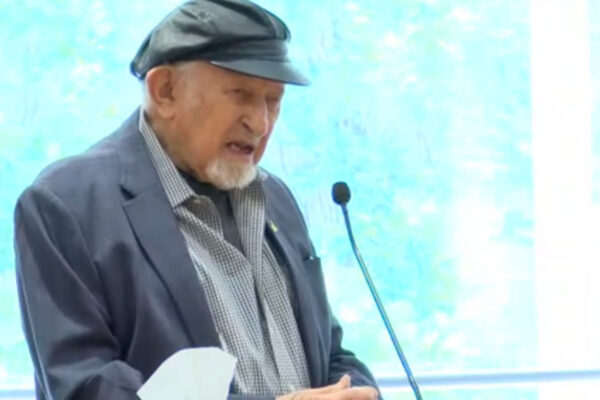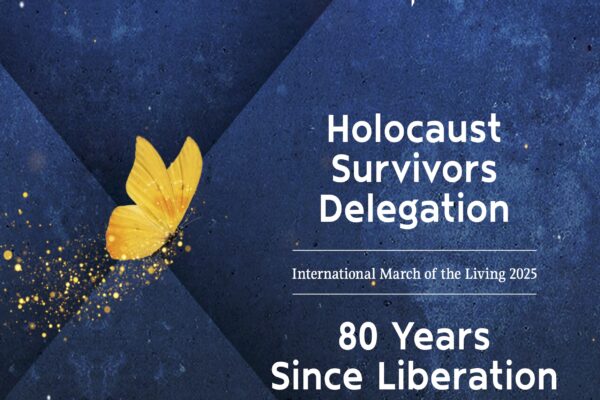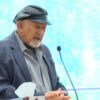 A LOT has been written about the horrors of Auschwitz and the suffering of its victims.
A LOT has been written about the horrors of Auschwitz and the suffering of its victims.
Yet in the eyes of Israeli historian Gideon Greif, the body of literature on Auschwitz cannot be considered complete without a reference to the Jews who worked in that factory of death.
His research on Auschwitz, spanning 40 years, has taken him to a topic unknown to many: the Jews known as Sonderkommando, who were chosen to dispose of the bodies of those killed in gas chambers.
The role played by the Sonderkommando in helping exterminate Jews in Auschwitz and similar death camps has long been shrouded in mystery but snippets of information about them can be gleaned from, say, the account of noted writer and Auschwitz survivor Primo Levi.
Since Sonderkommando members were first-hand witnesses to Nazi genocidal crimes, it was the Nazis’ intention that none of them survived to tell the world their stories.
Most Sonderkommando were themselves killed after a period of time, and then immediately replaced.
Still, a small number of them survived, thanks to several self-organized uprisings and the German failure to kill them all, said Greif in a recent interview with Shanghai Daily.
Convinced that these people and their stories were of great value to the research of the Holocaust, Greif took it upon himself to begin interviewing Sonderkommando members decades ago. He claimed to have discovered 31 survivors who worked inside the gas chambers and crematoria. Some lived in Israel, others abroad.
“Sadly, nobody cared about them,” said the historian, who is affiliated with Yad Vashem in Israel, an institution dedicated to studying the history of the Holocaust.
His interviews of eight survivors were later published in a book entitled “We Wept Without Tears: Testimonies of the Jewish Sonderkommando from Auschwitz.”
“When this Sonderkommando was created, there were only six of them. Later, this unit grew to a peak of 1,000 men. Can you imagine the scale, from six to 1,000?” Greif said.
As a fan of oral history, he conducted lengthy interviews with Sonderkommando survivors, hoping to preserve their memories before it was too late. Indeed, some of them died during the process of documentation. Many survivors were already in their 90s, creating a sense of urgency for the historian.
Saving memories
Greif said interviewing an individual occasionally required as many as 20 meetings. Complicating the difficulty is the reluctance of some to exhume their painful past.
Greif quipped that he “nominated” himself to be the historian of Sonderkommando, having initiated, financed and conducted the research all by himself. “I feel a bit of satisfaction that I saved (their) memories.”
Another interesting thing he found while studying the Sonderkommando is that their description in many books tends to be very negative.
Just because Sonderkommando enjoyed somewhat better living conditions, including better rations, than other prisoners doesn’t mean they were willing accomplices in Nazi crimes against humanity, he argued.
Greif’s fascination with the Sonderkommando has earned him the admiration of like-minded scholars such as Professor Pan Guang, head of the Jewish Studies Center at the Shanghai Academy of Social Sciences.
Lauding Greif’s work as “ground-breaking,” Pan commented that oral history is becoming increasingly difficult, because the majority of remaining Holocaust survivors are now in their 80s or 90s, which makes saving their stories all the more important, comparable to a “race against time.”
Pan himself is a veteran chronicler of Jewish refugees’ time in Shanghai, having authored or co-authored numerous books based on interviews of hundreds of Jewish refugees who fled Nazi persecution and sought shelter in the city.
As a domestic authority on Jewish issues, Pan recalled a visit to Auschwitz, where he saw a pile of victims’ shoes, clothes and hair on display.
The sight was immensely devastating and reminded him of the need to remember the Holocaust in its entirety. “Thanks to the efforts of scholars like Greif, we now know more.”







